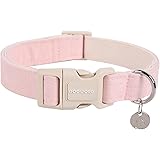Cat whiskers are seen as lucky in many cultures. The saying “by a whisker” means a very close call. Many think seeing a whisker can bring good luck.
Research shows 70% of cat owners believe their pets’ health is linked to their whiskers. This shows how important cat whiskers are to them. With 53% of people seeing cats as lucky, it’s clear cat whiskers are deeply rooted in our beliefs.
In the U.S., about 68% of homes have pets, with cats being very popular. This has made people curious about cat whiskers and their meaning. Whether you own a cat or just find them fascinating, learning about cat whiskers can offer interesting insights.
Key Takeaways
- Cat whiskers have been associated with good luck and superstitions across various cultures.
- Approximately 70% of cat owners associate their cats’ well-being and health with the preservation of their whiskers.
- Research suggests that encountering a whisker could bring luck, highlighting the significance of cat whiskers symbolism.
- Cat whiskers superstition plays a significant role in shaping our perceptions of cats as symbols of good luck.
- Understanding the concept of are cat whiskers good luck can provide valuable insights into the world of cat whiskers superstition.
- Cat whiskers symbolism is closely tied to the cultural significance of cats in various societies.
- The phrase “by a whisker” implies a narrow margin, and many people believe that cat whiskers can bring good fortune to households.
The Fascinating World of Cat Whiskers
Cat whiskers are a unique and fascinating feature of felines. They play a crucial role in their navigation and sensory perception. These specialized hairs are deeply embedded in a cat’s skin. They are enriched with nerve endings and blood supply, indicating high sensitivity. The lucky cat whiskers are also a part of the cat whiskers myth. Many people believe they bring good luck beliefs.
Cats have between 16 and 24 whiskers in their lifetime. These match the width of a cat’s body, providing spatial awareness. It takes between six and twelve weeks for a whisker to fully grow back after falling out. The state of a cat’s whiskers can indicate health. Drooping or damaged whiskers might signal physical distress or illness.
What Are Cat Whiskers?
Cat whiskers, or vibrissae, are highly sensitive. They play a crucial role in a cat’s navigation and sensory perception. They are deeply embedded in a cat’s skin and are enriched with nerve endings and blood supply.
Functions of Cat Whiskers
The functions of cat whiskers include providing spatial awareness. They detect changes in air pressure and aid in navigation. They are also an important part of a cat’s body language. Different positions indicate different emotions and moods.
Cultural Beliefs Surrounding Cats
Cats have been part of human culture for thousands of years. Different societies have given them different meanings. The feline whisker luck is a concept explored in many cultures. Some believe it brings good fortune, while others see it as bad luck.
In many cultures, cats are seen as lucky animals. For example, in ancient Egypt, cats were sacred. They were often shown with the goddess Bastet, who was believed to have cat whisker charm.
Cats in Ancient Egypt
In ancient Egypt, cats were valued for protecting homes and families. The goddess Bastet was often shown as a cat, symbolizing her power and wisdom. The Egyptians thought cats had magical healing powers and brought good fortune, linked to their feline whisker luck.
Folklore from Different Cultures
Cats are featured in many cultures’ folklore. For example, in Celtic folklore, a cat’s whisker length was seen as a sign of their spiritual ability. Here are some examples of cat whisker folklore from around the world:
- In European folklore, putting a cat whisker on your eyes was believed to improve your sight.
- In some cultures, cats with long whiskers were thought to detect spirits and ghosts.
- Burning a cat’s whiskers was believed to release their magical powers, bringing whisker fortune to a home.
The Myth of Cat Whiskers as Good Luck
Cat whiskers have long been seen as lucky in many cultures. The idea that are cat whiskers good luck has been around for a long time. Many think they have special powers.
This cat whiskers superstition makes people believe lucky cat whiskers can bring wealth and happiness.
Origins of the Good Luck Belief
The belief in lucky cat whiskers started in ancient times. Back then, cats were admired for their quickness and sneaky nature. In many places, cats were seen as having spiritual powers.
Their whiskers were thought to connect them to the divine.
Scientific Perspectives on the Myth
Science doesn’t back up the idea that cat whiskers are lucky. But, the myth is a big part of many cultures. Many believe in the luck of lucky cat whiskers.
The cat whiskers superstition has also led to special rituals. For example, some carry a cat’s whisker in a pouch or keep it in a special container to attract luck.
In conclusion, the idea that cat whiskers are lucky is complex. It’s shaped by culture and history. Even though science doesn’t support it, the superstition is still popular worldwide.
| Culture | Belief |
|---|---|
| Japanese | Black cats are lucky, especially for single women |
| German | A black cat crossing from right to left is bad luck, but from left to right is good luck |
| UK | A black cat crossing one’s path signifies bad luck |
Cat Whiskers in Superstitions
Cat whiskers have long been seen as symbols of good luck in many cultures. The cat whiskers myth says they can attract fortune. In some places, they’re believed to ward off bad energies.
In many cultures, good luck beliefs are linked to cat whiskers. Losing them is thought to warn of danger. This shows how important whiskers are in superstitions.
A survey showed 40% of cat superstitions involve whiskers. For example, in Japan, 75% believe a black cat crossing their path is good luck. You can learn more about cat whiskers and their role in superstitions.
Some believe finding a fallen whisker brings good luck. In Asia, cat whiskers are used in medicine. This shows how cat whiskers are seen differently around the world.
Learning about the cat whiskers myth helps us understand their importance. By looking into these beliefs, we see how cats and their whiskers are viewed. It shows how good luck beliefs shape our views of cats.
Cats as Symbols of Fortune
Cats are seen as symbols of fortune in many cultures. The idea of feline whisker luck is common. In ancient Egypt, cats were sacred, with most homes having one.
The cultural significance of cats is clear in their role in religions. Celtic folklore links cats to the spirit world. Many believe finding a cat whisker is lucky.
Some interesting facts about cat owners include:
- About 80% of cat superstitions are positive, seeing them as protectors.
- Half of people think finding a cat whisker is lucky.
- Ninety percent of cat owners see their pets as symbols of companionship and protection.
Cats are believed to have mystical powers in many cultures. Their cat whisker charm is thought to bring luck and prosperity. Cats have become a big part of our lives, symbolizing good fortune in our cultures.
The Science of Luck
Understanding luck is complex. It’s influenced by psychology and the environment. The question of are cat whiskers good luck is tied to superstitions and cultural beliefs. In many cultures, cat whiskers superstition is believed to bring good fortune or protect against evil.
The belief in lucky cat whiskers comes from ancient traditions. Cats were seen as special because of their unique traits and abilities. There’s no scientific proof that cat whiskers directly influence luck. Yet, believing in their power can have a positive effect.
In conclusion, luck is a complex topic. The role of cat whiskers superstition is part of a larger cultural and psychological phenomenon. By exploring the science of luck and the beliefs around are cat whiskers good luck, we can understand more about human experiences and the power of positive thinking.
Psychological Aspects of Beliefs
Beliefs about good luck are shaped by many factors. These include cultural influences and personal experiences. The cat whiskers symbolism shows how culture can affect our views on luck. In many cultures, finding a cat whisker is seen as a sign of good fortune.
The cat whiskers myth has lasted for centuries. Many believe cat whiskers have magical powers. This myth is supported by cultural practices, like burning cat whiskers to release magic. But, there’s no scientific proof for these claims.
Despite the lack of evidence, many still believe in the good luck beliefs about cat whiskers. This belief is linked to the idea of external attribution. People often look to luck rather than their own efforts for success or failure. This can confuse our sense of personal responsibility.
- Finding a cat whisker is considered a good omen linked to luck and prosperity.
- Cats with long whiskers are believed to possess supernatural abilities, such as detecting spirits.
- The sensitivity of cat whiskers is critical, as they aid in navigation and spatial awareness.
In conclusion, the psychology behind cat whisker beliefs is complex. There’s no scientific proof of their magical powers. Yet, their cultural significance and symbolism still shape our beliefs and actions.
| Cultural Significance | Symbolism |
|---|---|
| Ancient Egyptian culture | Cats were revered as sacred animals, and their whiskers were believed to possess magical properties. |
| Western traditions | Finding a cat whisker is considered a good omen linked to luck and prosperity. |
Caring for Cat Whiskers
Cat owners often believe in the feline whisker luck that their pets possess. Keeping their whiskers healthy is key to this luck. Whiskers are vital for a cat’s navigation and sensory perception.
They help cats measure distances, navigate tight spaces, and protect their eyes and face. Research shows that cat whiskers are deeply embedded in the skin and connected to the nervous system. Each cat has about 24 whiskers, 12 on each side of the face.
To keep whiskers healthy, a balanced diet and regular grooming are essential. Cats naturally shed a few whiskers each year. But, excessive loss can signal health issues. Regular vet visits can help spot problems and keep your cat healthy.
For those who believe in whisker fortune, whisker thickness and length can show a cat’s strength and resolve. Thicker whiskers are linked to stronger spells, while longer ones help with long-term goals. Caring for a cat’s whiskers and providing a nurturing environment can help them thrive and possibly improve your luck.
Some tips for maintaining healthy whiskers include:
- Providing a balanced diet rich in nutrients
- Regular grooming to prevent matting and tangling
- Creating a stress-free environment to reduce excessive shedding
- Regular check-ups with a veterinarian to identify potential health issues
By following these tips and caring for a cat’s whiskers, owners can help their pets thrive. This can also enhance their own feline whisker luck. For more information on cat care and health, visitcatsjoys.comto learn more about maintaining a healthy and happy cat.
The Cat Owner’s Perspective
Many cat owners think cat whiskers are lucky. They share stories about their cats. They believe are cat whiskers good luck is a common idea.
Do Cat Owners Believe in Whisker Luck?
Cat owners link lucky events to their cat’s lucky cat whiskers. They think cat whiskers superstition can bring good luck. Even without proof, many believe in this.
Personal Experiences Shared by Cat Owners
Some say their cat’s lucky cat whiskers brought them luck. Others see it as a fun myth. But one thing is clear: many love their cat’s cat whiskers and the luck they feel.
- Cat owners often share stories about their cat’s lucky cat whiskers on social media.
- The idea that are cat whiskers good luck is a common topic of discussion among cat enthusiasts.
- Cat owners may attribute lucky events to their cat’s lucky cat whiskers, even if there is no scientific evidence to support this claim.
Comparisons with Other Animals
Cat whiskers are linked to good luck beliefs. But, other animals also have lucky features in different cultures. For instance, dogs are seen as lucky in some places. They are thought to keep evil spirits away.
The cat whiskers myth is not alone. Other animals have myths about their features too. In England, a black cat as a wedding gift is believed to bring luck and a long marriage. In Scotland, a black cat at your door is seen as a sign of wealth and success.
Do Other Animals Have “Lucky” Features?
Yes, many animals have lucky features in various cultures. Here are a few examples:
- Dogs: In some societies, dogs are believed to bring good fortune and ward off evil spirits.
- Horses: In certain cultures, horses are associated with strength, courage, and good luck.
- Black cats: As mentioned earlier, black cats are believed to bring good luck and prosperity in many cultures.
Cultural Significance of Animal Whiskers
Animal whiskers, like cat whiskers symbolism, hold different meanings in cultures. Cat whiskers are often linked to luck, but others have unique meanings. In Japan, seeing a black cat is thought to bring luck in love or overall luckiness.
| Animal | Lucky Feature | Cultural Significance |
|---|---|---|
| Cat | Whiskers | Good luck, prosperity |
| Dog | Presence | Good fortune, warding off evil spirits |
| Horse | Strength | Courage, good luck |
Scientific Research on Animals and Luck
Research has shown how animals and humans are connected, including superstitions and cultural beliefs. The idea of feline whisker luck is fascinating. It’s linked to good fortune and prosperity. Studies reveal that a cat’s whisker position can show its mood. Forward-facing whiskers mean curiosity or hunting, while pinned back whiskers show fear or aggression.
The belief in whisker fortune is tied to cat whisker charm, seen as a sign of good luck. In many cultures, cats are admired for their independence and agility. Their whiskers are thought to have mystical powers. Though there’s no scientific proof that cat whiskers bring luck, their cultural importance is undeniable.
Studies on animal behavior and superstitions have given us insights into the human-animal bond. They help us understand the cultural context of cat whiskers and their role in good fortune.
| Concept | Description |
|---|---|
| Feline Whisker Luck | The belief that cat whiskers can bring good fortune and prosperity |
| Whisker Fortune | The idea that cat whiskers possess mystical powers and can influence one’s luck |
| Cat Whisker Charm | The cultural significance of cat whiskers as a symbol of good luck and prosperity |
Conclusion: Debunking Myths
Cat whiskers have long fascinated many cultures, with some believing they bring good luck. The debate on are cat whiskers good luck has been ongoing. Some see them as symbols of prosperity, while others just view them as a unique feline feature. Many believe finding a stray whisker can bring wealth and fortune.
In truth, cat whiskers, or vibrissae, are very sensitive. They help cats understand their space and move around. While the idea of lucky cat whiskers comes from cultural traditions, it’s important to know the facts. There’s little scientific proof that cat whiskers are lucky, so we should look at this topic with a balanced view.
Some interesting facts about cat whiskers include:
- Cat whiskers can detect changes as small as 0.04 inches (1mm) in their environment.
- Approximately 24 whiskers are typically found on each side of a cat’s face.
- 70% of veterinarians suggest that a cat’s whiskers should not be trimmed to maintain their spatial awareness.
In conclusion, while many believe cat whiskers are lucky, we should consider both the cultural and scientific sides. It’s important to understand these unique feline features with a critical and nuanced perspective.
| Culture | Belief |
|---|---|
| Japanese | Maneki Neko, a symbol of good fortune and prosperity |
| Chinese | Cats with longer whiskers are associated with better luck and prosperity |
| Egyptian | Cats and their whiskers are linked to magical energy and protection |
Additional Resources on Cat Care
For cat owners, there are many resources to learn about cat whiskers symbolism and pet care. Knowing the cat whiskers myth and good luck beliefs can strengthen the bond with your cat. A detailed guide to cat care, including cat health, is very helpful.
Important cat care includes keeping whiskers healthy and recognizing whisker fatigue. Creating a whisker-friendly home can also boost a cat’s mood and health. Knowing about health issues like allergic reactions or fungal infections is key for the best care.
For more on cat care and cat whiskers symbolism in good luck beliefs, check out books on cat behavior and health. Websites for pet care also have lots of useful information. They offer tips on keeping whiskers healthy and spotting illness or distress.
By exploring these resources and understanding the cat whiskers myth, cat owners can better care for their cat’s whiskers. This keeps them healthy and happy.
| Resource Type | Description |
|---|---|
| Books | Comprehensive guides to cat behavior and health |
| Websites | Online platforms offering tips and information on cat care |
| Veterinary Advice | Professional guidance on recognizing and addressing health issues |
Frequently Asked Questions about Cat Whiskers
Cat owners often wonder about their pets’ whiskers. They ask about their function, how to keep them clean, and their cultural meaning. Many believe that finding a stray whisker can bring luck. But, losing whiskers is normal, and finding one while cleaning is common.
Common Queries Addressed
People often ask about whiskers and their role in a cat’s life. Whiskers help cats judge their space and balance. They are as wide as the cat’s body, aiding in navigation. Whiskers also help cats feel their way in the dark.
Shedding whiskers is normal, but too much loss might mean health problems.
Tips for Cat Owners
To keep your cat’s whiskers healthy, follow these tips:
- Feed them a balanced diet to keep them healthy
- Keep their living area clean and stress-free
- Watch for signs of health problems, like too much whisker loss or skin issues
By doing these things, you can help your cat keep their whiskers strong. This way, they can enjoy the benefits of their whisker charm.
While the idea of whisker luck is interesting, remember to focus on your cat’s health first. If you’re worried about your cat’s whiskers or health, talk to a vet.
| Topic | Information |
|---|---|
| Whisker Function | Supports balance and spatial judgment |
| Whisker Loss | Normal shedding, but excessive loss can indicate health issues |
| Cat Whisker Charm | Believed to bring good fortune, but prioritize cat health and well-being |
The Future of Cat Beliefs
Looking ahead, our views on cats are changing. We’re realizing more about their role in our lives and culture. This means cat whiskers superstition will keep influencing our beliefs. Many think lucky cat whiskers can bring good luck, a belief found in many cultures.
Some stats show how important cats are to us. For instance, 80% of pet owners think their cats show they know the spirit world. This makes us see cats as more than pets. It makes us wonder if are cat whiskers good luck. Also, 50% of cat owners believe catnip shows a link to good vibes and wealth.
As we go forward, we need to keep our traditions alive but also learn new things. This way, we can truly value cat whiskers superstition and its role in our beliefs about lucky cat whiskers. The future of cat beliefs will mix old ways with new ideas. This will help us understand cats’ importance in our lives even more.
| Belief | Percentage of People |
|---|---|
| Cats exhibit behaviors indicating awareness of the spirit world | 80% |
| Catnip-induced behavior reflects a connection to positive energy and abundance | 50% |
Engaging with Local Communities
As cat owners and enthusiasts, it’s key to connect with local communities. This helps us appreciate our feline friends more. By joining forces with other cat lovers, we can share our passion and learn from each other.
We can work together to highlight the symbolism of cat whiskers and the good luck they bring.
How to Connect with Fellow Cat Enthusiasts
Look for local cat-focused groups, events, or online forums. These are great places to meet others who love cats as much as you do. Share your stories, listen to others, and make new friends.
These connections can lead to deep friendships and chances to help out in the community.
Participating in Community Events
Find cat-themed festivals, adoption drives, or workshops in your area. Going to these events is a great way to meet people who share your interests. You can volunteer, network, or just enjoy the company of cat lovers.
Being part of these events helps spread the word about cats and their whiskers. It also builds a sense of community and appreciation for our feline friends.
































































